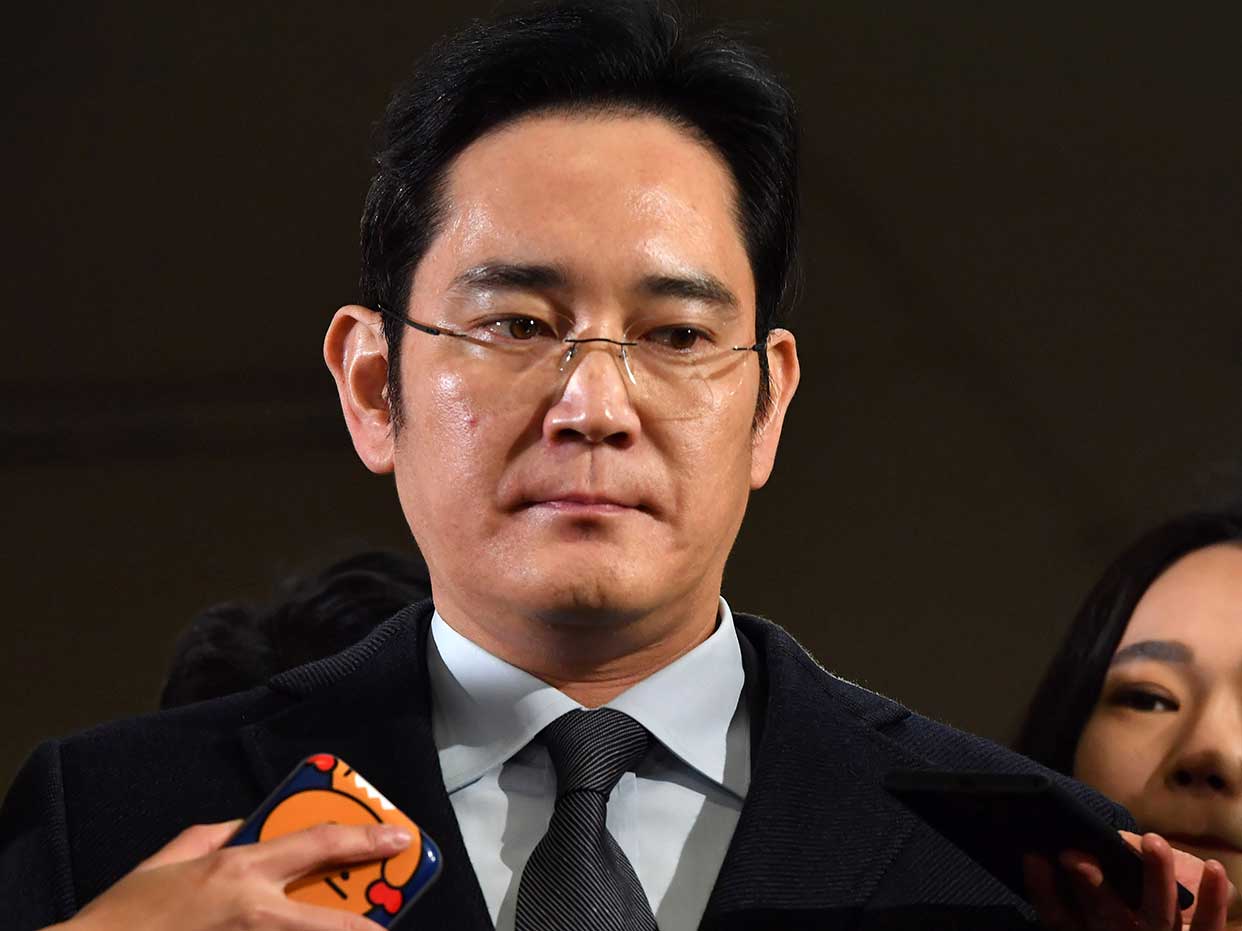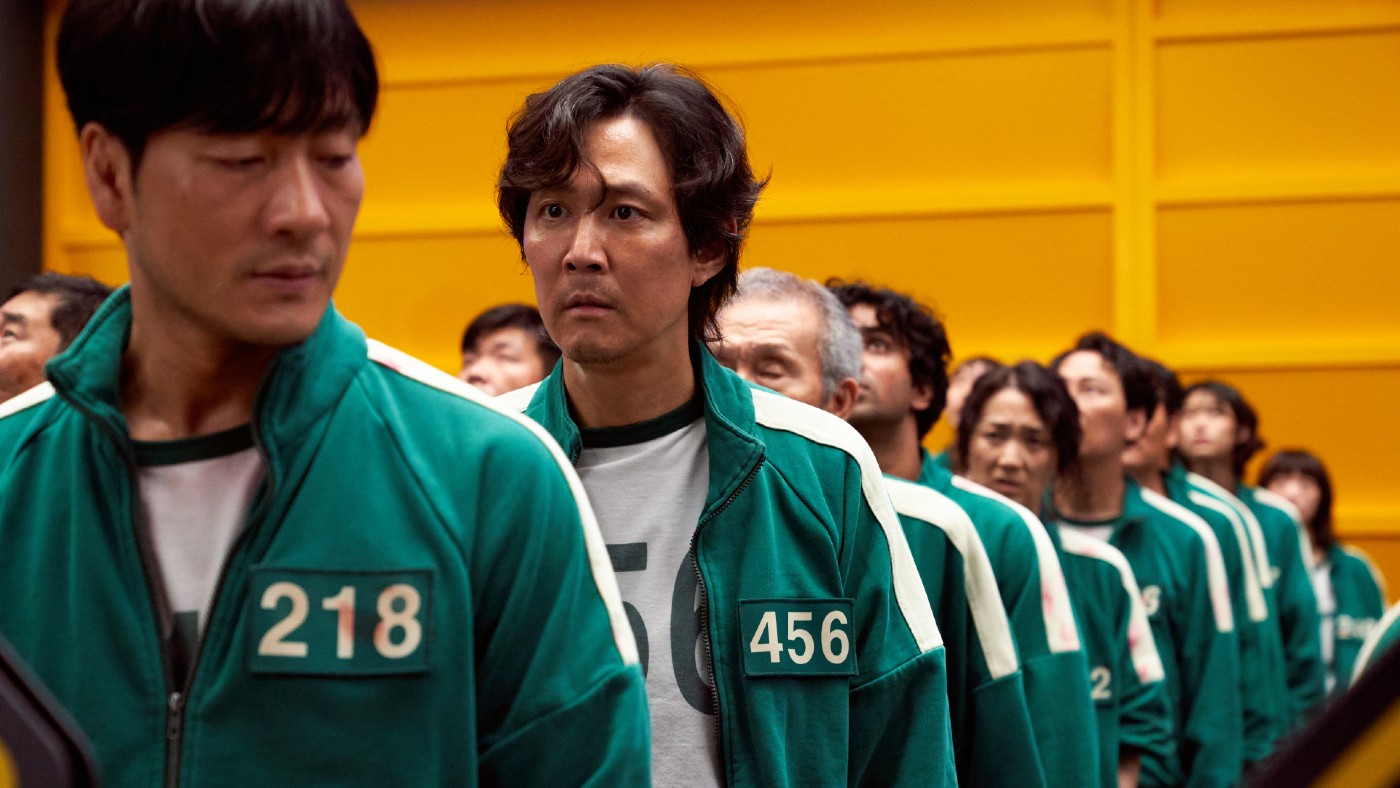Samsung heir's jailing proves South Korean bosses aren't 'too big to jail'
Lee Jae-yong's case could have ramifications for former president Park Geun-hye

A free daily email with the biggest news stories of the day – and the best features from TheWeek.com
You are now subscribed
Your newsletter sign-up was successful
Lee Jae-yong, the heir-apparent and de facto chairman of the world's largest smartphone manufacturer, Samsung, has been sentenced to five years in prison.
The corruption conviction of such a senior figure would be newsworthy enough – but in this case there are potential ramifications for other business leaders and an impeached former president.
That's because the trial is related to a long-running bribery scandal that has exposed the division in South Korean society between older conservatives and a younger population yearning for change.
The Week
Escape your echo chamber. Get the facts behind the news, plus analysis from multiple perspectives.

Sign up for The Week's Free Newsletters
From our morning news briefing to a weekly Good News Newsletter, get the best of The Week delivered directly to your inbox.
From our morning news briefing to a weekly Good News Newsletter, get the best of The Week delivered directly to your inbox.
Here's everything you need to know.
Why was Lee jailed?
He has been found guilty of "bribery, embezzlement, hiding assets overseas, concealing profit from criminal acts and perjury", says The Guardian.
Central to the case are charges that he approved donations totalling 41bn won (£29m) to non-profit organisations run by former South Korean president Park Geun-hye's confidante Choi Soon-sil, in return for political favours.
A free daily email with the biggest news stories of the day – and the best features from TheWeek.com
Samsung has admitted making the payments but says it was "forced to do so by Park". It also confirmed making payments and donating a horse to help further Choi's daughter Chung Yoo-ra's equestrian career.
Prosecutors argued the payments were made in return for government support for an $8bn (£6.3bn) merger of two Samsung divisions that would consolidate the Lee family's stranglehold on the company.
"The merger was opposed by many shareholders, but went through after it was approved by the national pension fund, a major Samsung shareholder," the Guardian reports.
Is the prison sentence significant?
Hugely so. "This isn't the first time a top executive of a big conglomerate has been convicted for corruption in South Korea," says the BBC, "but in the past, they've either been given suspended sentences or have been pardoned by the president."
The Guardian refers to the widely quoted "3-5" rule - "three years sentencing, five years’ probation" - for convicted leaders of so-called "chaebols", the family-run global conglomerates that dominate South Korea's corporate landscape.
All that is changing under new president Moon Jae-in.
Park Sangin, a professor of economics at Seoul National University, said shortly before the verdict: "If Lee receives a heavy sentence, it can be seen as the shattering of the ‘too-big-to-jail’ trend of the past."
What does this mean for president Park?
It's bad news. She was impeached in March after a three-month leadership crisis and faces trial later this year, with the potential for a sentence of life imprisonment.
"Lee’s conviction bodes ill for Park as prosecutors have argued she and Lee participated in the same act of bribery," says Reuters.
Things already weren't looking good following a spate of convictions.
Choi was sentenced to three years in prison in June for using her influence to solicit favours for her daughter. Then six ex-officials in Park's government were jailed in July for "blacklisting" figures deemed unfriendly to the leader, says the New York Times.
There remains a core of support among conservative older generations for Park, the daughter of former dictator Park Chung-hee, who Reuters says is "credited with dragging the country out of poverty in collusion with the… chaebol".
But Park’s "nostalgic supporters are few" compared with the huge number of mostly younger Koreans that turned out in central Seoul every week to call for her to be ousted – and who delivered a landslide for President Moon in May.
What does this mean for Samsung?
Lee has been acting as stand-in chairman at the firm since his father, Lee Kun-hee, suffered a heart attack in 2014. The older Lee was himself convicted of tax evasion in 2009 but received a suspended sentence.
Investors are concerned that the "enforced absence" of the de facto head will "create a leadership vacuum at Samsung... and harm its ability to make key strategic decisions", says The Guardian.
Samsung's shares fell one per cent after the sentencing. Lee's solicitors have vowed to appeal and said they are confident the conviction will be overturned.
The share price drop was not overly dramatic, however, which perhaps reflects the fact that the company has "continued largely unaffected" since Lee was first arrested six months ago. It posted a record profit of 11trn won (£7.6bn) for the last quarter.
-
 House votes to end Trump’s Canada tariffs
House votes to end Trump’s Canada tariffsSpeed Read Six Republicans joined with Democrats to repeal the president’s tariffs
-
 Bondi, Democrats clash over Epstein in hearing
Bondi, Democrats clash over Epstein in hearingSpeed Read Attorney General Pam Bondi ignored survivors of convicted sex offender Jeffrey Epstein and demanded that Democrats apologize to Trump
-
 Are Big Tech firms the new tobacco companies?
Are Big Tech firms the new tobacco companies?Today’s Big Question Trial will determine if Meta, YouTube designed addictive products
-
 Squid Games: the real-life crisis that inspired hit Netflix show
Squid Games: the real-life crisis that inspired hit Netflix showfeature Brutal survival drama portrays fictional victims of South Korea’s soaring household debt
-
 Britain signs post-Brexit free trade deal with South Korea
Britain signs post-Brexit free trade deal with South KoreaSpeed Read Agreement comes amid uncertainties over potential no-deal Brexit